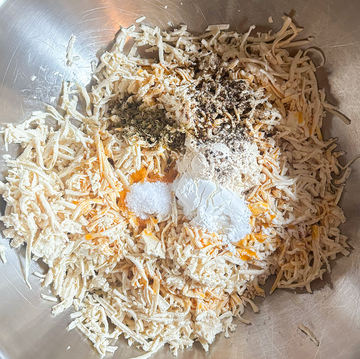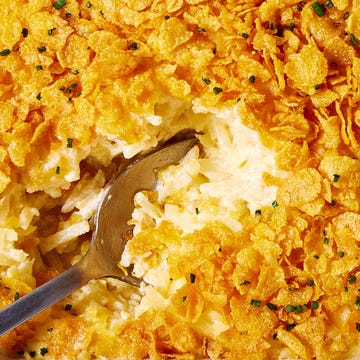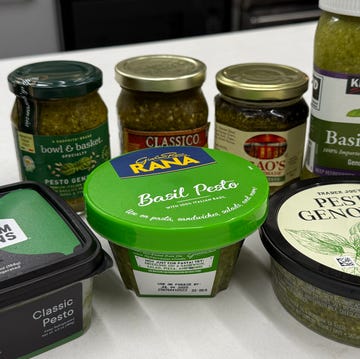Coolest Crowdfunded Food Projects
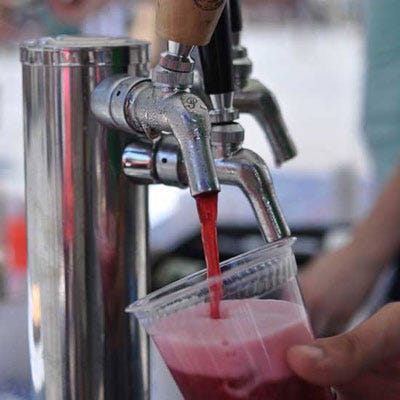
Brooklyn Soda Works

Pitch: Brooklyn Soda Works began in the home kitchen of artist Caroline Mak and chemist Antonio Ramos, when they were experimenting with homemade ginger beer. They found that the best results came from fresh-pressed juice, and their vision for a soda company was born.
Campaign: Mak and Ramos offered free sodas, tote bags, and hand-printed original soda recipes to those who pledged during their 42-day Kickstarter campaign.
Success: The couple raised $2,849 — more than $1,000 over their goal — which helped them relocate to a large warehouse space and buy equipment to make large batches of their creatively flavored sodas (raspberry-green peppercorn, red currant-shiso). A variety of New York bars and restaurants, including Blue Hill and Untitled at the Whitney Museum, now offer the soda on tap.
Nomiku; Online
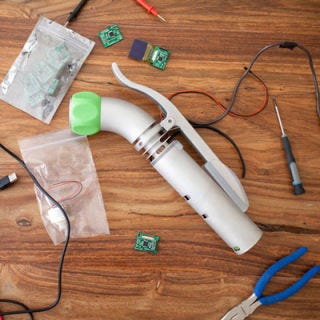
Pitch: Dismayed at the high cost of immersion circulators, Jean-Georges–alum Lisa Q. Fetterman; her astrophysicist husband, Abe Fetterman; and Wipop Bam Suppipat, an industrial designer with a culinary degree from the French Culinary Institute, invented the Nomiku, a sous vide machine made specifically for home cooks.
Campaign: The team's Kickstarter campaign received a slew of publicity from the likes of Wired, CNET, and Engadget. The Nomiku team offered donors a variety of incentives: $5 earned one physics question answered by Abe Fetterman, $59 bought a ticket to a pop-up sous vide party, and for $299, supporters prepurchased a Nomiku.
Success: After a massively successful month, the team received $586,061 from 1,880 backers — more than $300,000 above their goal, which they tracked with a digital scoreboard created by one of the team's equally inventive friends. The sous vide machines can now be preordered on Nomiku's website for $359.
The Porthole

Pitch: Chicago-based designer Martin Kastner conceived this beautiful glass-and-steel vessel for infusions after chatting with bartenders preparing to open Aviary, Grant Achatz’s experimental cocktail bar. The mixologists wanted a way to beautifully display cocktails that change their appearance over a short time. Inspired by an image of a porthole in the 1958 movie The Fabulous World of Jules Verne, Kastner created the bar's now signature glass.
Campaign: Kastner needed just over $28,000 to invest in bulk materials and set up mass production of The Porthole in order to lower the retail cost from $400 to $100. Perfect for coffee, oils, or teas as well as cocktails, the design was available for pre-purchase with pledges of $95 or more. Coverage of Aviary's gorgeous "fast infusion" cocktails in the media helped this Kickstarter garner great publicity.
Success: Over 4,000 backers contributed an incredible $736,112. A dishwasher-safe Porthole is now $99 (pre-order for March).
DROUGHT; Detroit, MI
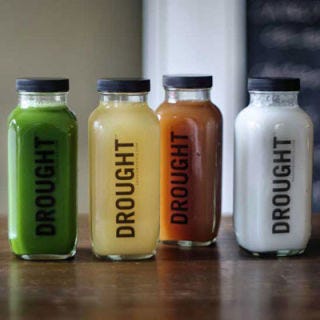
Pitch: In 2011, five sisters (Caitlin, Jessie, Julie, Jane, and Jenny James) decided Detroit needed a cold-pressed, organic, raw juice bar, and hoped to open a stand at Detroit’s Eastern Market.
Campaign: The sisters started a Kickstarter campaign to invest in industrial juicers, pay the vendor stall rental fees, and buy quality packaging for their products. During their monthlong campaign, the sisters posted short films of their day-to-day experiences.
Success: Thanks to overwhelming support, DROUGHT evolved into a full-time business with a storefront as well as a stall in the market after surpassing its goal of $12,536. The videos helped: “We still have random people come into our shop and retell our story from start to finish as seen on our video updates,” says Caitlin James. Today, DROUGHT sells fresh juices like young Thai coconut water and carrot-kale on Saturdays at the market and in a permanent store in Detroit.
Bitter & Esters; Brooklyn, NY
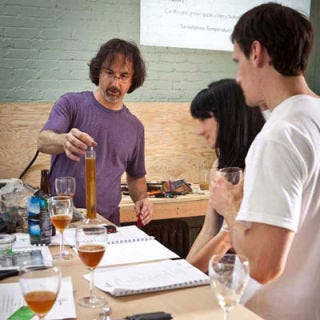
Pitch: Friends with a shared love of fermentation, John La Polla (an expert home brewer and brewing class teacher at NYC Resistor) and Douglas Amport (a seasoned home brewer and experienced home winemaker) originally wanted to open a pub. When the start-up costs proved far too expensive, they chose to open a brew-your-own-beer shop. Their dream: A space where experts and novices alike could make and ferment their own beer with quality equipment and ingredients.
Campaign: To reach their $4,000 Kickstarter goal, La Polla and Amport offered rewards like laser-etched glasses, a brewing-essentials kit, and lifetime access to all of the shop’s events.
Success: Seventy-five backers pledged $4,825 to the brew shop, which is now open to beginner brewers looking for a lesson, and pros who need supplies.
Kerfluffles Marshmallows; Online
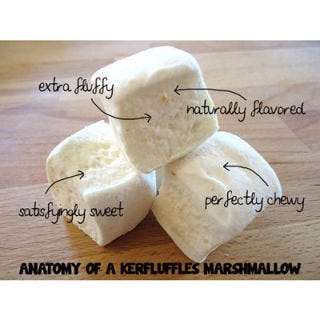
Pitch: While recovering from a sudden life-threatening illness in 2007, Spring Barnickle found strength in the kitchen. An experienced home cook and candy maker, she started experimenting with marshmallows in spring 2012 and developed a recipe for soft, fluffy, and creatively flavored marshmallows.
Campaign: The promise of Barnickle’s ethereal, homemade marshmallows as rewards drew more than 2,000 backers to her Kickstarter campaign. Generous donors received marshmallows in a variety of flavors, including a Kickstarter exclusive: Mayan hot chocolate.
Success: Barnickle raised $104,667 — her original goal was just $2,023. Now self-titled "marshmallower-in-chief," Barnickle sells five signature flavors (vanilla bean, double Dutch chocolate, mocha chip, orange dreamsicle, and lemon meringue), and fun seasonal flavors (like pumpkin pie and gingersnap), on her website.
Vergennes Laundry; Vergennes, VT
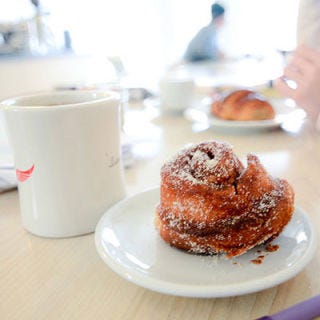
Pitch: The small town of Vergennes, Vermont, was without a proper patisserie or boulangerie until Julianne Jones (who spent three months apprenticing with the Vermont bread baker Gérard Rubaud) and her husband, Didier Murat, decided to take over a former Laundromat — hence the name — and transform it into a French-style bakery in 2010.
Campaign: During the one-month Kickstarter campaign, extra-generous backers were rewarded with CSE (community supported enterprise) shares, which could be traded in for goods when the bakery opened. The money paid for a custom-designed wood-fired oven, which now serves as the centerpiece of the bakery.
Success: Jones and Murat raised more than $12,000, and opened the bakery in late 2010. The couple serves pastries like flaky croissants, sweet and savory tartines, and crusty loaves of bread fresh from the powerful oven, along with cheeses, charcuterie, and sandwiches.
Saltwater Oyster Depot; Inverness, CA
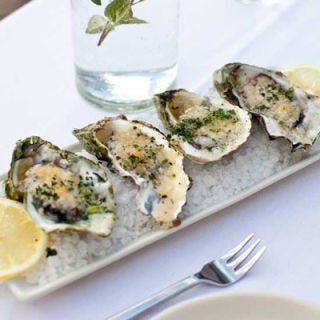
Pitch: A self-described aquatic farmer, Luc Chamberland dreamed of opening an ultralocal oyster bar serving superfresh Tomales Bay oysters, like those cultivated at his organization Pickleweed Point, a community oyster farm.
Campaign: Chamberland provided the initial start-up capital but used the restaurant’s website to crowdsource extra funds to stay afloat. Both during and after his fundraising, Chamberland offered gifts to donors, from a meal for two of oysters and local sparkling wine to a day as an oyster farmer, with rubber boots included.
Success: The restaurant is now open for business, serving local wines, oysters, and dishes like crispy lamb's tongue. Chamberland continues to offer incentives for people who want to help the restaurant grow, such as prepaid vouchers for meals and parties at the oyster bar.
El Poblano Farm; Staten Island, NY
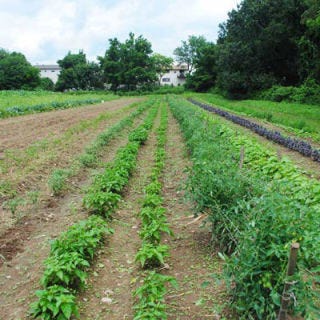
Pitch: Run by Gudelio Garcia, a native "Poblano" (from Puebla, Mexico), the farm, which specializes in traditional Mexican vegetables and herbs like aromatic pipicha, cilantro-esque papalo, and crisp, minty-garlicky epazote, began in 2009 on a one-acre plot on Staten Island. The demand for the farm’s specialty herbs from individuals and local restaurants grew, so Garcia decided to expand the farm and start a seed bank.
Campaign: Incentives like boxes of fresh vegetables and seed packets drew hundreds of backers to the farm’s aid. The Kickstarter campaign also got the farm invited to showcase its produce at the Guac Rock Festival, an annual guacamole competition/rock concert thrown on a boat in New York’s East River.
Success: By August 2012, the farm exceeded its $5,000 goal by more than $3,000. El Poblano now sells its produce at local farmers’ markets, and is working to start a weekly CSA (community supported agriculture) program offering fresh Mexican produce to members.
Revolution Doughnuts; Decatur, Georgia
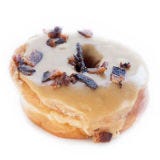
Pitch: After years of baking in her own kitchen and then in borrowed spaces, amateur baker Maria Moore Riggs decided that her popular all-natural doughnuts, which she sold under the name Little Red Hen Bakeshop at farmers' markets in her hometown, Decatur, Georgia, merited a brick-and-mortar storefront.
Campaign: For just over a month, Riggs presold her fluffy doughnuts and locally roasted coffee on Kickstarter. Even vegan supporters enjoyed rewards of egg- and dairy-free doughnuts, such as Revolution’s sweet orange pistachio.
Success: The store sells doughnuts made with organic flour and locally sourced ingredients, like pumpkin with a spiced ginger glaze.
Five by Five Tonics Co.; Online
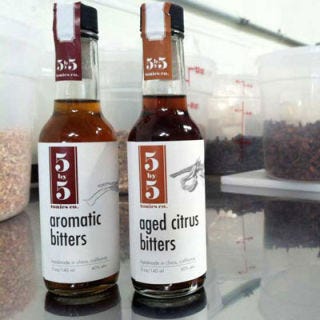
Pitch: Informed by his training as a professional herbalist and inspired by the nuanced flavors in cocktails, Jesse Smith set out to make his own line of bitters.
Campaign: Smith’s monthlong campaign was an obsession for him. "I ran through so many emotions on a daily basis that I was a wreck! I would go from elation to terror within minutes," Smith recalls. "I could get all the updates and new backer alerts on my phone, so I would wake up in the morning and check my phone before my eyes were barely open."
Success: In the end, 229 backers pledged $9,942 — more than $6,000 above Smith’s original goal — which allowed him to create aromatic bitters and aged-citrus bitters, a style made with citrus fruits of varying maturity for a complex, savory flavor.
Cómodo Restaurant; New York City
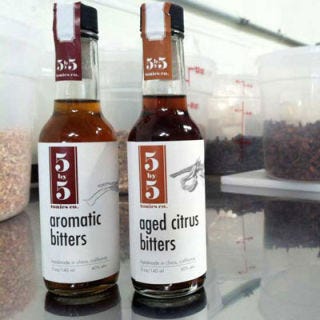
Pitch: In 2010, the husband-and wife team of Felipe Donnelly and Tamy Rofe started a supper club in their New York City apartment. The concept: never cook the same recipe twice, never host the same people twice. The couple gained so much acclaim from their dinners — as well as some unwanted attention from the city health department, which disapproves of unregulated restaurants — that they quit their jobs as advertising executives to open Cómodo.
Campaign: During a two-week Kickstarter campaign to raise $15,000, Donnelly and Rofe offered donors rewards like a DIY lamb sliders kit and a chef’s table for two when the restaurant opened.
Success: The couple reached its goal and opened Cómodo, Spanish for "comfortable," last summer in Soho. The South American-inflected restaurant serves dishes like citrusy pollack ceviche and coffee-rubbed braised Berkshire pork. And, breaking from their supper club rule, they welcome return customers.
Real Time Farms; Online
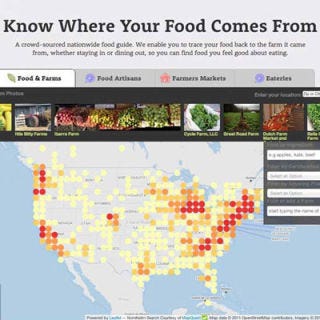
Pitch: Reading Michael Pollan's The Omnivore’s Dilemma inspired former Google engineer Karl Rosaen to start an online, crowdsourced, nationwide food guide to enable users to trace food back to the farm from which it came. Individual users, farms, and restaurants contribute information about — and photos of — ingredients, farmers' markets, restaurants, and artisans to the database.
Campaign: When the site first began, a majority of the listings were in Ann Arbor, Michigan, where Rosaen lives, but crowdsourced information helped it go national. The site continues to grow every day thanks in part to the impressive board of advisers, which includes Food & Wine Best New Chef 2011 Stephanie Izard, and author Amanda Hesser.
Success: So far, the growing database contains roughly 4,800 farms and artisans, 37,000 photos of foods and farms, and 11,000 menu items.
More From Food and Wine

There's so much this great nation has to offer. Check out more best of the U.S. from Food & Wine:


How Hooters Is Plotting A Comeback

This Is What Happens When You Eat Too Many Strawberries

7 Melatonin-Rich Foods For A Better Nights Sleep
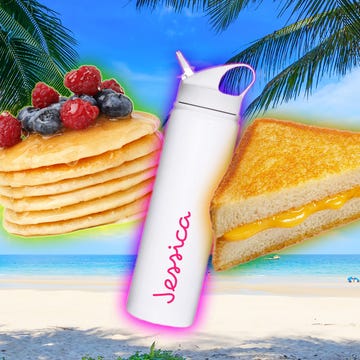
The Truth About 'Love Island's' Food & Drink Rules


